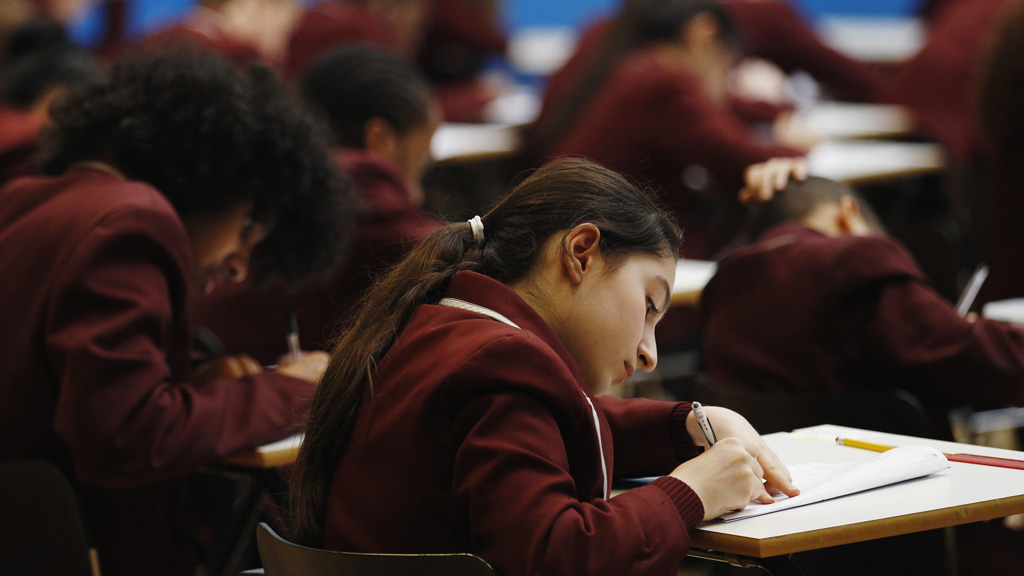Private schools embrace ‘more stimulating’ IGCSEs
Fee-paying schools are turning to the alternative exam as they continue to outperform state schools in bagging top grades.

IGCSEs are based on the old O-levels and are seen by many private schools as more rigorous than GCSES.
The alternative qualification now accounts for 32 per cent of exam entries among privately educated 16-year-olds, up from 24.9 per cent last year.
National GCSE and IGCSE results for England, Wales and Northern Ireland from the Independent Schools Council showed a drop in the proportion of all entries awarded the very top grade, with 8.2 per cent scoring an A* this year compared to 8.3 per cent last year.
Private school pupils scored four times as many top grades in their GCSEs and IGCSEs this year compared to the average candidate.
Some 32 per cent of all entries from students at fee-paying schools achieved an A* grade, up one percentage point on last year.
On average, each private school pupil achieved two A* grades and seven As in their results.
Westminster School in central London scored the best grades, coming top in a new league table of private schools.Some 98.16 per cent of pupils were awarded an A or A*, and 100 per cent got at least a C.
In second place this year was North London Collegiate School, a girls-only school, where 97.94 per cent of exam entries were awarded at least an A grade, and 99.9 per cent achieved a grade C or higher.
Girls’ schools dominated this year’s private school GCSE and IGCSE table, occupying seven spots in the top 10, along with two all-boys schools and one mixed school.
Bernice McCabe, headmistress of North London Collegiate School said that two thirds of the qualifications now taken by pupils are IGCSEs amid concerns about the quality of GCSEs.
She said: “They are just not challenging enough. We have found that in many subjects IGCSEs are more stimulating for our students.”
-
Latest news
-
‘Russian aggressions have never pushed Georgia to deviate from its own path’, says Georgian President5m

-
Why is Georgia’s ruling party so intent on adopting ‘foreign influence’ bill?5m

-
Trump’s lawyers try to paint Michael Cohen as liar out for revenge at trial3m

-
England’s schools told not teach gender identity2m

-
Slovakia PM shooting: Suspect charged with attempted murder3m

-




